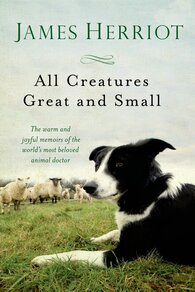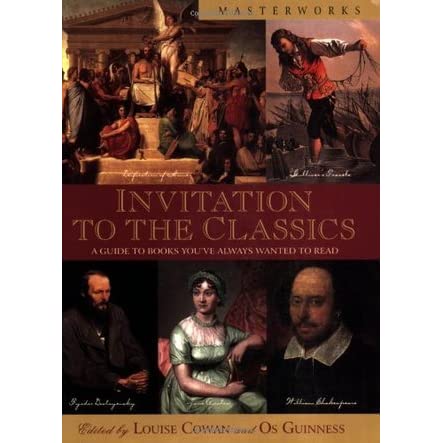 Don't make the mistake of discontinuing to read to your readers. Once your children are independent readers, your job isn't done. You can still read books that are just beyond your child's reading or comprehension ability and explain things along the way. Reading-aloud even to your teens builds family relationships and gives everyone something in common to talk about. It builds vocabulary effortlessly, which translates into students who have an easier time of writing. It's just plain worth the time to do it. Some of our best homeschool memories were the shared books we read-aloud. For older children, 12 years old and up, I recommend the series of books by James Herriot, who was a veterinarian in Yorkshire, England in the 20th century. The first one is All Creatures Great and Small. In them, he relates his experiences, many of which are hilarious in his dealings with animals, his boss, his boss' brother, farmers, and other people. They are a bit graphic at times (he was a vet of large animals after all), and that is why it would be better to wait until your children are older before you read these aloud. There is also a series of books for children, which I don't think are quite as good as his original books that these stories are culled from. If they are young, just wait on this one. I chuckled when I thought of the title for this post, but it is apt. This is a keeper book in my personal library and it is a classic reference on classic literature. It gives excellent, but brief, info. on authors of classic works, important historical background, and a short look at one of their most-known works. It begins with Homer and ends with Solzhenitsyn. If you are a serious homeschooler, you really should be building a library of reference books. It will save you time going out to the library or worse...doing without! Sometimes I am a bit embarrassed about my ignorance of modern literature until I remember the classics. I have read a lot of them, but not all of them. There is just no end of them and I cannot pull myself away from the best to read only the good. In case you don't know what the big deal is about classics, consider the following: "We should be custodians of culture." Anyone who knows me knows I love art of all kinds and I love pictures and illustrations. Nevertheless, we should not replace images with reading. Words are important for both the mind and the spirit. Charlotte Mason was such an advocate of this idea, that the mind needs food every bit as much as our physical bodies. We don't want to feed our bodies junk; why would we do that with our minds?
Reading should not be a race. It is one reason I have never been fond of encouraging kids to read "X" number of books. Why? There is no value to having read like a speed demon. It is much better to have read two classics and have contemplated and absorbed them. How many books have you read and forgotten because it was consumed and discarded? Again, Charlotte Mason advocates the oral or written re-telling of one short passage at a time. Why? Because we can only remember and digest a small bite at a time. The younger the child, the shorter the selection. For older children or adults, a chapter might be fine. The more challenging the work, the smaller the bites. It is better to ask: What do you remember? What did you learn? It's also great training for pulling one's thoughts together and articulating them. The classics are often entertaining, but they offer more than a good story. They present themes important to all of us: the meaning of life and death and how they should be approached; right and wrong; triumph and tragedy. They make you think. It is surely not the last you will hear from me on the value of the classics. This why my online literature classes uses classic works rather than textbooks. You can see my literature and writing classes for 2020-2021. |
Renee MetcalfWhere will you find me when I am not teaching? For your reading pleasure!
August 2023
Topics
All
|

 RSS Feed
RSS Feed
